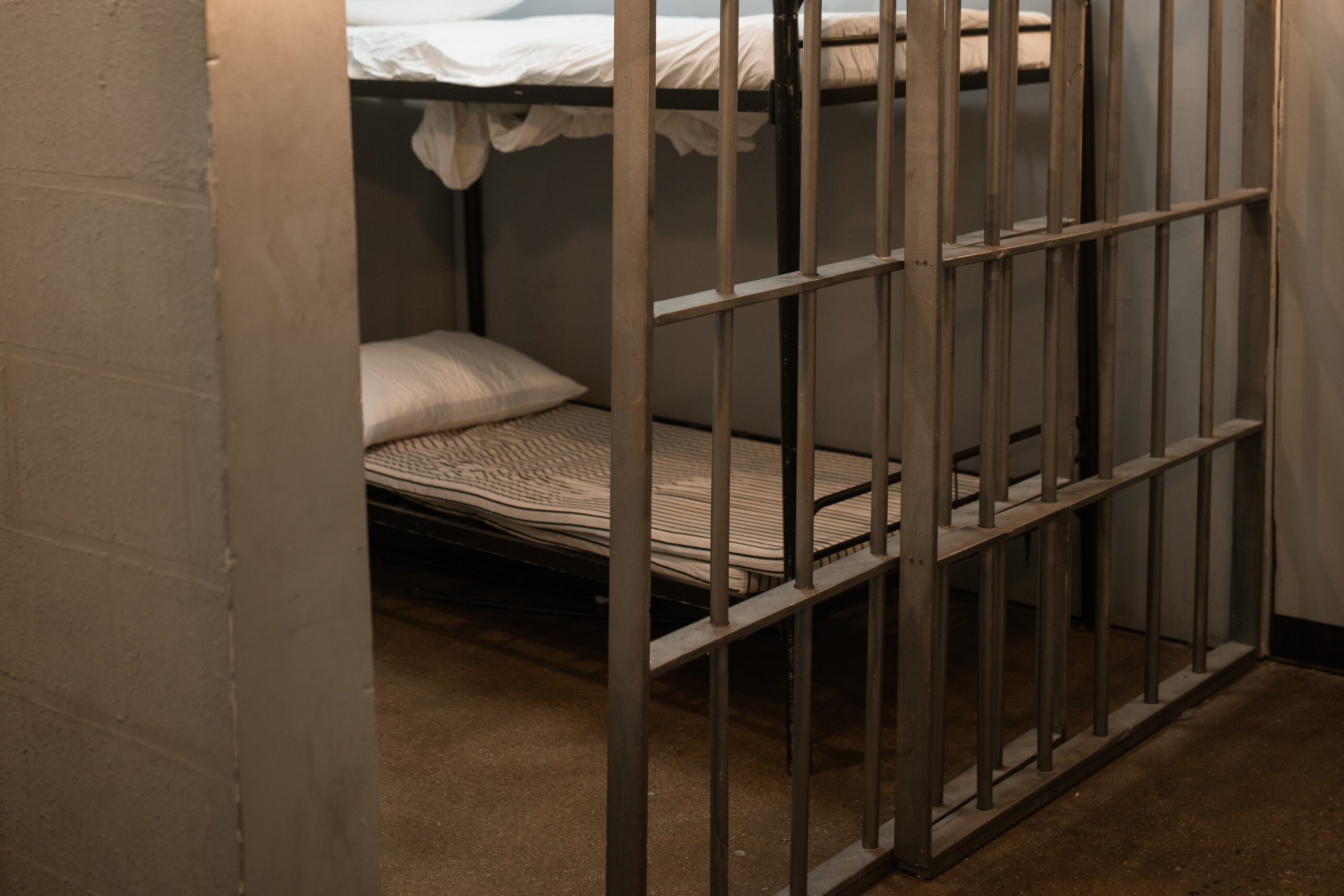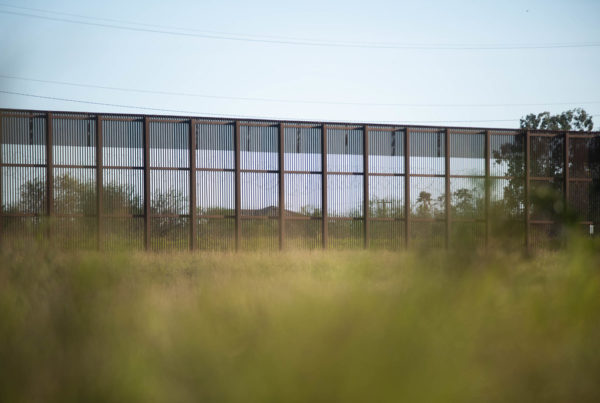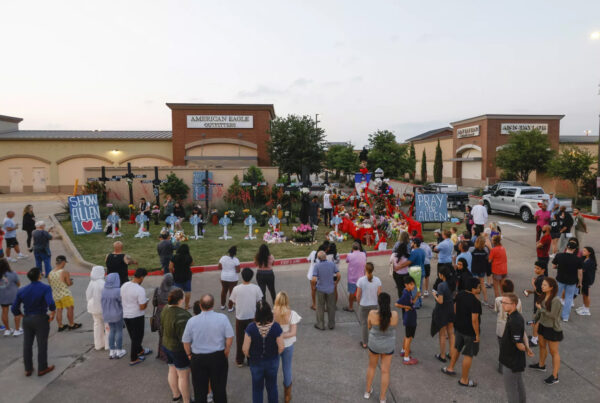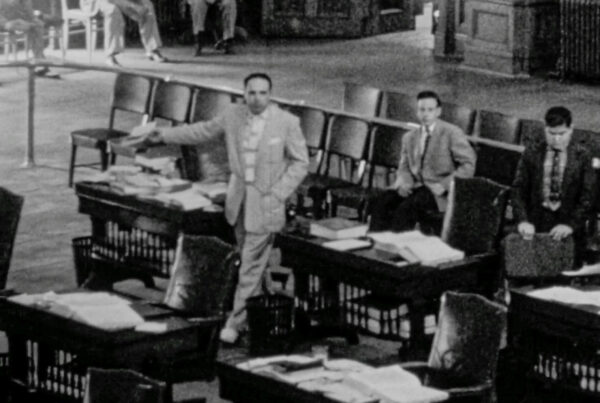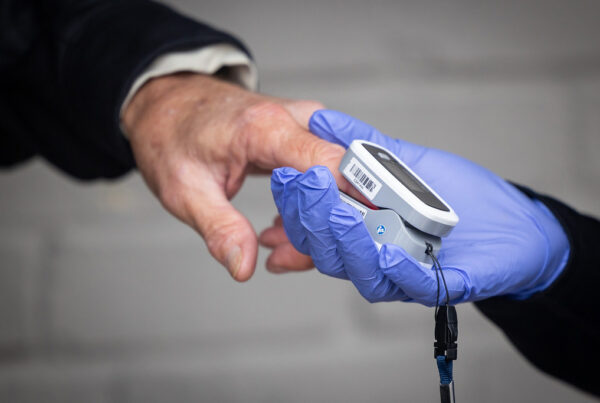Texas Ranger James Holland was renowned for getting people to talk. Holland’s name was in headlines in 2018 after eliciting confessions from Samuel Little, a serial killer who’s claimed responsibility in dozens of cold cases.
Another man who Holland got to confess is named Larry Driskill. In 2015, Driskill owned up to the 2005 murder of Bobbie Sue Hill, a young mother whose body was found west of Fort Worth.
But Driskill has also maintained that he has no memory of killing Hill. Later, he came to believe he may have been manipulated into a confession by Holland and urged a journalist to listen to the recordings of his interrogation.
The journalist was Maurice Chammah, who spoke to the Texas Standard about a new podcast about the case called “Smoke Screen: Just Say You’re Sorry.” Listen to the story above or read the transcript below.
This transcript has been edited lightly for clarity:
Texas Standard: You’ve heard these tapes. Did anything stand out to you in listening to them?
Maurice Chammah: At first it really just sounds like any cop talking to any suspect. I was chuckling at the way he’s trying to butter him up, because as a journalist I talk to sources and try to get them to talk to me all the time and it didn’t sound so different. But over time, there are moments where the Texas Ranger says something and you think, “wait a minute, is that true? That couldn’t possibly be true.” And then come to find out that it was a lie. And once my antenna was up, I started to see this interrogation in a new light. There are moments where the ranger says to Driskill, “hypothetically, if you had committed the crime, how would you have done it?” I never heard an interrogator ask someone that before. It felt very manipulative. And that really spurred me to report more on this case.
Was Driskill represented by counsel? It sounds like no.
At the time, no. In the tape, he keeps saying, “Hey, can I call my friend? He’s a lawyer.” And he doesn’t ask explicitly enough that the ranger has to stop the interview and let him go do it. Eventually, you know, he gets a public defender, and now, many years later, he’s working with the Innocence Project of Texas.
Does it sound to you, knowing what you know about criminal law, that Ranger Holland did anything illegal during the course of the questioning?
No, no, not at all. He seems to have totally gone by the book in a lot of ways. So the question that I think is raised by this interrogation is not “was this a bad apple interrogator breaking the rules?” It was “what are the rules and what should those rules be?” Because it’s legal to lie to people in the interrogation room. There’s a risk that that can create a false confession. Should Texas Legislature, should other lawmakers ban these practices as a way of preventing potential false confessions and wrongful convictions?
Has Larry Driskill had an opportunity to listen back to the tapes? I mean, when he first said “a journalist needs to listen to these recordings,” what was it that he thought happened during the course of that interrogation?
Well, he thinks that the Texas Ranger manipulated him into having kind of false memories or a false idea that he committed this crime, even though he couldn’t fully remember it. So there are little snatches of memory. You know, “I remember being in a van. I remember being in this neighborhood.” He eventually had sort of what we could only call mental pictures of, you know, dumping a body, but he also doesn’t really think it happened. So it is a question of whether this is almost like his imagination becomes reality. And then also he thought that the tapes would show that, you know, hours and hours went by. He wasn’t eating. He wasn’t getting to go make a phone call. And he was just at a certain point desperate to get out of the room. And that was also a big reason why he confessed.
But to the question of whether he’s listened back, he has only listening back in bits and pieces and I think part of that is because it’s painful for him to do it. I mean, this is one of the most traumatic, difficult moments in his life. He confessed to a crime that he swears he didn’t commit. He doesn’t really understand how that was possible until listening to these tapes. And so I think it’s really difficult for him.
With a confession, I guess, that lowers the burden that the state has to carry at trial. You have a confession. But was there a theory that the state relied on for why Larry killed Bobbie Sue Hill?
The main theory was that she was a sex worker and he was a John and that she perhaps tried to rob him and he snapped and killed her in self-defense. That’s certainly the narrative that the Texas Ranger got Larry to admit to. The case didn’t actually go to trial because Larry Driskill thought he would lose. And so he took a plea deal that wasn’t exactly admitting fault. It’s a kind of unique type of plea, but it was a 15-year sentence in prison. But the confession was really the only evidence against him. And presumably at a trial, the prosecutors might have claimed that he was just a John who had a propensity towards violence and wanted to murder the sex worker. But then that theory of the case never really got played out to its fullest extent because there was no trial.
Has Larry ever said anything about that theory of the case?
Yeah, he has said that he’s never been with a sex worker in his life, that he was barely ever in this neighborhood – you know, a few times to visit his father, to go bid on some jobs. He was a contract worker. But he is sort of flummoxed at this entire idea that he would go, you know, take the services of a sex worker, much less kill somebody. This to him just seems like, you know, complete nonsense, except for the moments where he was in the interrogation room and he started to think, “oh, my God, maybe I did do this. Could I have done this? If I had done this, why wouldn’t I remember it?” And that really shook, I think, his sense of his own self and identity.
What was it that made you want to focus on Larry Driskill in your podcast? What was it that made this story stand out in your mind?
Well, in some ways, Larry Driskill could be any of us. He was a working man. He had a job at the jail in Parker County, which is outside Fort Worth. Just sort of an average guy going about his life who then is plucked out of it. And that, to me, raised a question for me –for any listener – could you be brought to the point where you confess to a crime that you didn’t commit? So that was one reason.
The second reason that I was really sort of astonished by this case and wanted to spend the months that it takes to make a podcast, is that the train of events that led to Larry Driskill were truly bizarre and full of things that I had not encountered in my reporting. Like hypnosis, they had hypnotized a witness. They had created a police forensic sketch and then aged that to account for the passage of time. Just these sort of novel, even exotic techniques that I found myself wondering “how common are these?” Do the Texas Rangers do these all the time, and do they actually create reliable results, or are detectives just running around trying these bizarre techniques and it takes them to these unwitting suspects like Larry Driskill?
I know that some states have recently changed what is and isn’t allowed during law enforcement interrogations. What about Texas?
Texas has not passed any bills that ban some of the interrogation techniques that are at play in this case. There’s currently a bill to ban forensic hypnosis that may or may not pass, may or may not get signed by the governor. Many states are passing bills that ban lying in the interrogation room, although the focus is on juveniles – people under 18. So it’s legal to lie to everyone in the interrogation room, including children, and many states are starting to ban it for kids. No state has yet banned it for adults.
States like Texas do have bills that were passed in the last decade that require police to record their interrogations. So now we’re at the point where we have these tapes. We know what they’re doing. And I think over the next, you know, two, four, six years, as we have more legislative sessions, some of our lawmakers will hear about more cases like Larry Driskill and start to wonder, should police be allowed to lie in the interrogation room? Should they be allowed to hypnotize people? And what else can we make law around to prevent false confessions and ultimately innocent people going to prison?


